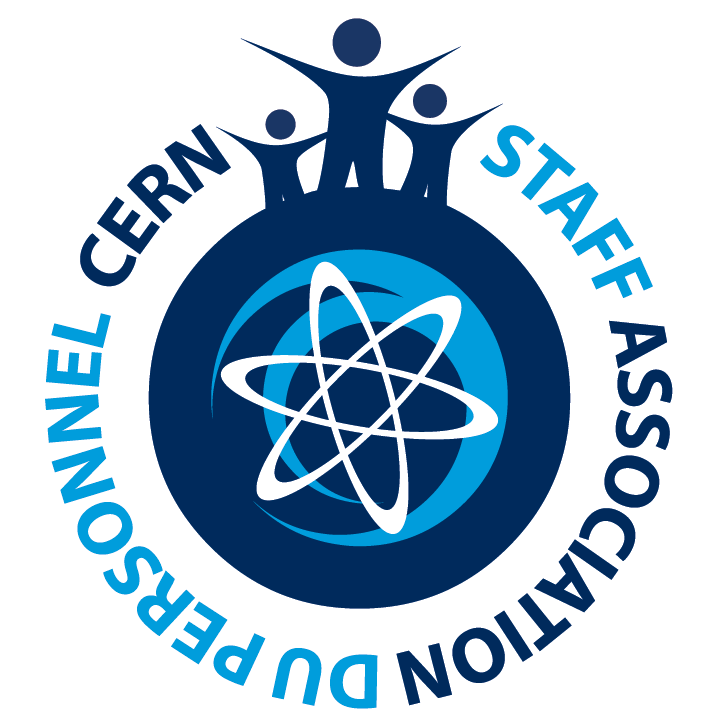QUESTIONS & REPLIES FOLLOWING THE PUBLIC MEETING

Q1) According to HR, there is no difference in teleworking from home or any other country abroad (especially member states). However, in our department, working from home while abroad is only allowed in very exceptional occasions. How do we tackle this inequality be-tween departments ?
Operational Circular No. 71 (Rev. 2) states that “Whilst teleworking, members of the personnel must remain reachable by telephone and e-mail and available for video meetings. Supervisors may re-quire members of the personnel to report to the CERN site, subject to reasonable notice.”
The OC 7 does not mention that there is no difference in teleworking from home or any other country abroad.
However, the admin e-guide2, which is not part of the legal corpus of the Organisation states: “Pro-vided that it does not exceed 40% in any two-week period, telework can be done from virtually any location, subject to the supervisor’s approval and depending on the needs of the service.”
It should be noted that, like all administrative decisions, decisions to refuse a request for telework should be justified (arbitrary decisions are not allowed) and that they can be challenged (via a re-quest for review with or without mediator, or via an internal appeal). In all cases, we advise you to obtain a decision in writing (e-mail will suffice). Hence, do not hesitate to put your request in writing (e-mail will do) and if you receive an oral reply to put it in writing and request confirmation that you have correctly understood. Once you have a decision but wish to challenge it we advise you to con-tact the Staff Association before doing so.
[1] Operational_circular no7_Rev.2_EN.pdf (cern.ch)
[1] Telework | Admin e-guide (cern.ch)
Q2) What are the actions being taken to ensure our equal access to teleworking ? At EN-EL we are not permitted to telework (even though our work does not require physical presence)
The specific needs in each department may necessitate different implementations of teleworking.
The possibility to do up to 40% of teleworking per week and the corresponding modalities must be discussed with the supervisor and must consider the service needs, the timing of the request (school vacations, etc.). This does not allow the same treatment CERN-wide. There are by default some jobs at CERN which are not adapted to teleworking (e.g., firefighters...)
The Staff Association is concerned that treatment must be equitable among the teams and that re-fusals must be duly justified.
Nevertheless, if you have noticed inequalities of treatment, you can submit your case to the Staff Association CAPA commission in full confidentiality.
Q3) Could you please consider applying more equality on EN vs FR? Every time the SA presentations are FR with EN simultaneous translation. Should it be the other way round?
Thanks for your feedback and it will consider for future meetings, when and where is possible.
The Staff Association has already organised sessions in English, depending on the subject, for ex-ample the Public Meeting dedicated to the Associated Members of the Personnel.
In the past, the Staff Association has made sessions in English and French but at that time the frequency of the meetings was only twice a year. We do our best with the available resources; we encourage colleagues whose working language is English to join and become active in the Staff Association as this will make it easier to make more presentations in English. Note that we are more than happy to take questions in English, so do not hesitate to submit questions to us in English.
Q4) Why is the career development only targeted at people at the end of their grade, it is a small % compared to all other staff who might actually also benefit from career development.
Q5) Advancement in grades 9 and 10 was recently made to be faster. Why were the rest of us left with a slower advancement ? It’s time we also were rewarded for hard work !
It is generally agreed that colleagues at the end of their grade have too limited opportunities to further their careers and that they are at too big a disadvantage with respect to other colleagues; this is why we try and address this.
The new MERIT scheme for performance recognition and advancement was introduced in 2016, following the five-yearly review implementation. Among other changes the salary grid was modified, and Benchmark job (BMJ) categories were introduced associated with specific grades.
At the time of implementation of the new MERIT system, a number of staff members were above the maximum of their respective grade salary range and placed into what is called “personal positions.”
All staff members placed into “personal positions” or that were at the maximum salary range of their grade, in effect were ineligible for annual pensionable salary increases.
Transition measures were introduced which maintained pensionable salary increases for the period 2017-2020, but which were gradually phased out.
As of 2021, staff currently in such positions are not eligible for annual pensionable salary increases and may only receive non-pensionable performance related payments as a result of the annual MERIT evaluation. In addition to that one must underline that the present system generates, by de-sign, ever year new “personal positions” and of course members of the personnel reaching the top of their grade.
Between 150 to 200 persons are concerned up to now.
In order to address this situation, the Standing Concertation Committee (SCC) appointed a Career Development Working Group, whose mandate was approved on 6th May 2021.
The Working Group is not only mandated to propose recommendations for personnel and top grade positions to address the blocking of their career development aimed at maintaining motivation and engagement of Staff impacted but also:
- Report on status of the following HR programs or processes: VAE, Internal Mobility, Focus on your Career
- Explore how to best structure/enhance the “Development” side of Careers at CERN (this phase concerns ALL Staff members)
o Analyse needs for different professional life chapters (Early professional life, Mid professional life, and Senior professional life)
o Make Career Development Design recommendations, to deliver in 2022- 2023.
Q6) CERN employees and especially users work also during summer, yet the Jardin des Particules stops normal operations over summer. This has been a topic for many years; current efforts to ease the problem are still insufficient for working parents. Could this be addressed, please ?
The Jardin des Particules since several years propose summer camps in July depending on the number of children registered. The Jardin des Particules is also working on providing camps during holiday periods across the school year.
You can get more information by contacting the secretary: +41 22 767 36 04 or mailto:info.jdp@cern.ch, you may also contact directly the director Ms. Roberta Cavigliasso: mailto:roberta.cavigliasso@cern.ch.
You can also have a look to our web pages: https://nurseryschool.web.cern.ch/ and follow on Indico the presentation done by the managing team: https://indico.cern.ch/event/1172954/
If you were unable to attend, this public meeting, like the previous ones, was recorded thanks to the Audiovisual Department, to whom we extend our warmest thanks. You can view them now on the following link : https://indico.cern.ch/event/1168774/.
The remaining questions, will be replied within the next Echo issue.
